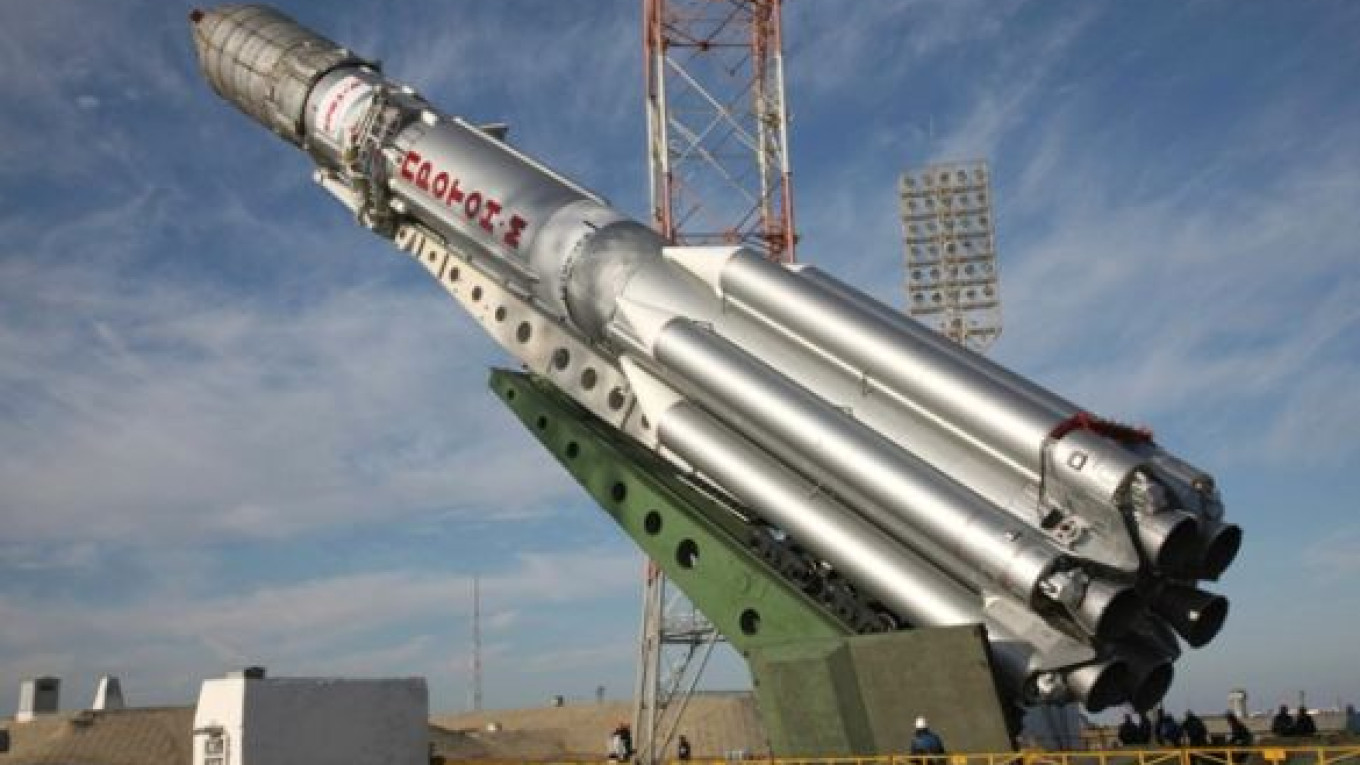The launch of a Proton-M rocket carrying a Dutch communications satellite was aborted Tuesday after technicians discovered a glitch in the rocket’s first-stage steering system.
The mishap threatens to further erode confidence in the national space industry, which has been shaken in recent years by a string of technical failures.
The Russian-built rocket, carrying a Sirius-5 satellite owned by the Netherlands-based firm SES, was ready to launch from the Baikonur Cosmodrome in Kazakhstan when the glitch was discovered.
The 6,000-kilogram satellite, built by California-based Space Systems/Loral, is intended to provide communications services to clients in Europe and Africa.
Space officials sent mixed messages about when the next launch attempt will take place.
An official at the state-owned Khrunichev Center, which makes the Proton-M, told RIA-Novosti that the launch would be rescheduled for Tuesday.
But the Federal Space Agency said in a statement that the date would be announced later.
The launch would have been this year’s sixth of a Proton-M rocket and the 378th of a member of the Proton family, which dates back to the mid-1960s.
Last summer, a technical booster-stage malfunction on a Proton-M sent a $265 million communications satellite into the wrong orbit.
In November, a technical failure in a different rocket system led to the loss of the $65 million Phobos-Grunt probe, designed to bring soil samples back from Mars.
Concern about the reliability of Russian rockets has been high since the U.S. Space Shuttle program was scuttled in July 2011, giving Russia a monopoly on the delivery of astronauts and supplies to the International Space Station.
A Message from The Moscow Times:
Dear readers,
We are facing unprecedented challenges. Russia's Prosecutor General's Office has designated The Moscow Times as an "undesirable" organization, criminalizing our work and putting our staff at risk of prosecution. This follows our earlier unjust labeling as a "foreign agent."
These actions are direct attempts to silence independent journalism in Russia. The authorities claim our work "discredits the decisions of the Russian leadership." We see things differently: we strive to provide accurate, unbiased reporting on Russia.
We, the journalists of The Moscow Times, refuse to be silenced. But to continue our work, we need your help.
Your support, no matter how small, makes a world of difference. If you can, please support us monthly starting from just $2. It's quick to set up, and every contribution makes a significant impact.
By supporting The Moscow Times, you're defending open, independent journalism in the face of repression. Thank you for standing with us.
Remind me later.


